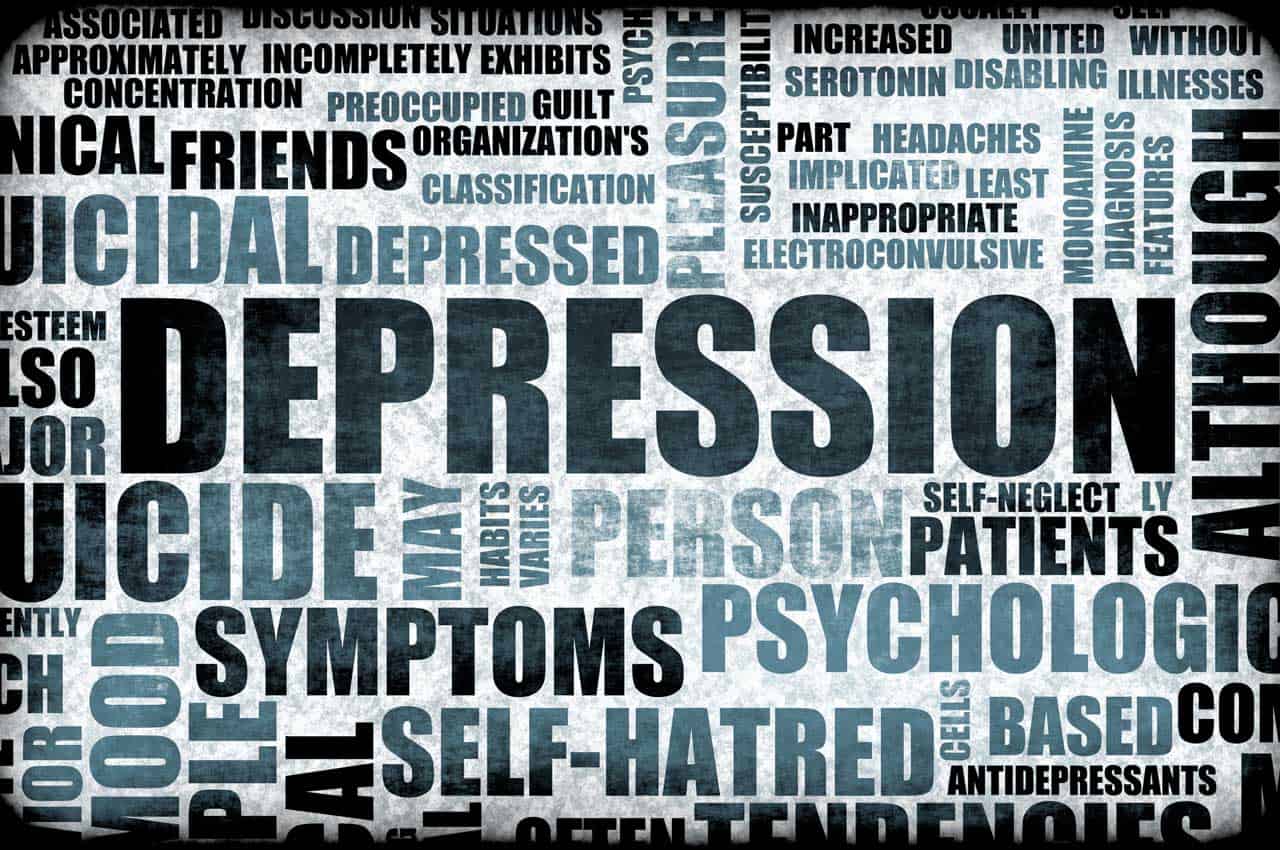If you are trying to find the best antidepressant to treat depression and anxiety, you may not know where to begin. There are dozens of FDA-approved antidepressants that have garnered much success, but it can be difficult to navigate what the best option is for your particular situation. In this article, we will be discussing the best antidepressant for depression and anxiety and how to choose the right medication to fit your mental health needs.
Amitriptyline
Amitriptyline is a highly successful antidepressant that is part of a class of medications called tricyclic antidepressants and works by increasing the natural substances in the brain needed to maintain a healthy mental balance. In a study examining efficacy of all antidepressants, Amitriptyline the highest effect size, meaning it worked better than any other oral antidepressant medication examined at the time.
This antidepressant option comes in the form of an oral tablet and is usually prescribed to be taken four times a day. Most healthcare professionals will start you off on a lower dose and gradually increase it as necessary to get the desired benefits. Along with treating depression, Amitriptyline is also used to treat other mood disorders as well as pain. However, amitriptyline comes with a number of significant side effects, which is why other drugs like SSRIs are used more commonly.
Escitalopram (Lexapro)
Escitalopram is an antidepressant medication option used to treat both depression and generalized anxiety disorder and is part of a group of medications known as selective serotonin reuptake inhibitors or SSRIs. SSRIs work by increasing the chemical serotonin activity in the brain, helping to relieve some of the side effects of generalized anxiety disorder and depression. In a study examining efficacy in antidepressants, Escitalopram was shown to be one of the more effective antidepressant options for SSRIs.
Depending on whether you are taking Escitalopram for depression or anxiety, your healthcare provider may put you on a higher or lower dose initially, sometimes as low as 5mg. Your healthcare provider will also help you determine if Escitalopram will have any adverse interactions with other medications that you may be taking.
Mirtazapine
Mirtazapine is an atypical antidepressant that is included in a group of medications called tetracyclic antidepressants or TeCAs. These are different than tricyclic antidepressants (TCAs), like amitriptyline. It is used primarily for treating major depressive disorder, OCD, and other mood disorders and works by inhibiting the central presynaptic alpha-2-adrenergic receptors, which can increase the release of serotonin and norepinephrine in your brain.
Mirtazapine has been shown to be one of the more effective antidepressant options and has a high efficacy rating. Like TCAs, mirtazapine side effects can be extreme, even though they work well.
Paroxetine (Paxil)
Paroxetine is another antidepressant option that belongs to the group of medications known as SSRIs, which is commonly used to treat depression, OCD, PTSD, panic attacks, and anxiety. Paroxetine has been shown to have a high efficacy rate, but weight gain and metabolic side effects can be a significant deterrent, and as such, more mild SSRIs are usually prescribed first.
Your healthcare provider can prescribe Paroxetine in the form of a tablet, liquid, or a controlled release tablet. You will most likely start off with a lower dose once a day, which may increase within a few weeks until you start to see improvements.
Spravato
Spravato is a unique type of antidepressant that doesn’t fit into the standard antidepressant medication classes, making it an atypical antidepressant. Unlike traditional antidepressant medications, Spravato, also known as esketamine, comes in the form of a nasal spray treatment that allows for faster absorption into the bloodstream.
Spravato is approved by the FDA to treat depression and suicidal ideation, and is an option usually used for individuals who have not responded well to traditional antidepressant options. It is believed to work by increasing your neuronal connectivity and brain function as well as reversing glutamate imbalance.
Because Spravato is administered through the nasal passages, any side effects you may experience will usually occur quite quickly after administration. Because of this, it is generally recommended that a healthcare provider monitor your reaction when you first try Spravato therapy.
TMS Therapy
Another option to treat anxiety and depression that has outstanding results is TMS therapy or transcranial magnetic stimulation. TMS therapy is an FDA-approved treatment option for depression, OCD, and bipolar disorder without requiring an oral antidepressant.
TMS therapy uses controlled magnetic pulses that are delivered to specific areas of the scalp that help to stimulate the brain’s mood center and induce neuroplasticity. With regular use, TMS can regulate your brain activity and reduce symptoms of anxiety and depression in a non-invasive way.
Is There a Best Antidepressant For Depression and Anxiety?
When you begin the process of looking for an antidepressant to treat depression and anxiety, you probably want to try the best option available. Unfortunately, even after extensive research, there still is no single antidepressant available that has been found to be the most effective. There are too many variables when it comes to how antidepressants work in each individual and the benefits and downsides they experience.
Because of this, it may take trial and error before you find an antidepressant that helps you to feel better with as few side effects as possible. Generally, SSRI or SNRI medications are the first types of antidepressants you will be recommended as they have an extensive history of improving symptoms of depression and anxiety.
How to Choose the Right Antidepressant Medication
Something to keep in mind when you are looking for an antidepressant for depression and anxiety is that there are other therapeutic options you can also try. Many people may find that therapy can help them better navigate why they are feeling depression or anxiety. A mental health professional can also help you find an antidepressant that is suitable for your mental health needs.
You should always discuss your goals and concerns with your healthcare provider as they can help you better decide what your options are. Here are some additional factors to consider when looking at your antidepressant options to find the right fit for your situation.
Type of Antidepressant
As we have already discussed, there are several different classifications of antidepressant medications, including SSRIs, SNRIs, and a typical antidepressant. Additionally, some FDA-approved medications for depression fall into the category of MAOIs and TCAs.
Your healthcare provider will be able to look at your medical history and past experiences to better recommend a type of medication that you are more likely to respond well to.
Side Effects
Each classification of antidepressant medication usually comes with its own specific possible side effects. You also need to take into consideration the individual side effects that have been documented for each antidepressant medication. Understanding the potential side effects can help you be better prepared when you are taking an antidepressant for the first time so that you know what to watch out for.
Something else to keep in mind is that if you already have certain health issues or a tendency towards specific side effects, this can increase your risk when taking certain types of medications.
Cost
Because antidepressant medications are a long-term commitment, you will need to take into consideration how expensive the medication is. Your health insurance may only cover certain antidepressants, or there may be a generic version available that is just as effective but much more affordable. Options such as Spravato and TMS may be more cost-effective due to their shorter treatment durations compared to oral antidepressants, which require long-term use. For many individuals, the cost of these interventions can be just a small copay for 2-3 months.
Medical History
Your medical history will have a significant impact on the type of antidepressant that will work for your depression and anxiety. You may want to stay away from certain antidepressants if they can impact the health conditions you already have or increase your risk of developing specific side effects. You may also have a history of not responding well to certain types of medications.
Your healthcare provider will also need to take into account any other types of medications you may already be taking, as some can have unpleasant and even dangerous interactions with antidepressants.
Personal Preferences
One of the last things to consider when you are choosing the best antidepressant is your personal preferences. For instance, you may prefer taking something like Spravato instead of Zoloft since it comes in the form of a nasal spray and doesn’t require you to take a pill. Or you may want to take an antidepressant that doesn’t come with specific requirements, such as having to take it at a particular time of the day or with food.
Some people may also be willing to live with certain side effects if they like how the antidepressant makes them feel.
No matter what antidepressant for depression and anxiety you ultimately choose, it is crucial that you seek the guidance of a healthcare professional. Contact the Bespoke Treatment team today to learn more about some of the most effective depression and anxiety treatment therapies available in California.


























